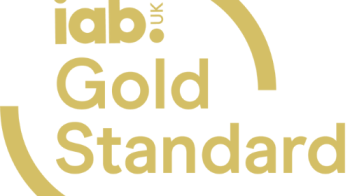Guide to advertising self-regulation in the UK
Posted on Tuesday 01 February 2022
See our policy guide to advertising self-regulation in the UK
Q. How is advertising in the UK regulated?
Q. How does the UK self-regulatory system work?
Q. What does the CAP Code cover?
Q. Does the CAP Code contain rules on advertising particular types of products or services?
Q. How does the ASA handle complaints?
Q. What sanctions are there if an ad breaks the rules?
Q. I want to make sure I comply with the Code. How can I find out more?
Q. Do the same rules apply in other markets in Europe, and in the U.S.?
Q. How does Brexit affect the regulatory system?
Q. Is there any other self-regulation in place for digital advertising?
Q. Where can I get more information?
Q. How is advertising in the UK regulated?
A. In the UK, digital advertising is regulated through a combination of legislation (such as the Consumer Protection from Unfair Trading Regulations (2008) and the Data Protection Act of 1998) and the self-regulatory UK Code of Non-broadcast Advertising and Direct & Promotional Marketing, known as the CAP Code. Self-regulation supplements legislation and fills the gaps where the law does not or cannot reach, often going beyond what the law requires. The benefits of self-regulation include:
-
demonstrating the industry’s commitment to best practice
-
removing the regulatory burden from Government
-
providing consumers with a free and easily-accessible route for resolving disputes
-
the flexibility to respond quickly to issues and adapt to new technologies and business models.
The UK’s advertising self-regulatory system is funded by an industry levy on the cost of buying advertising space, which is collected by ASBOF, the Advertising Standards Board of Finance.
Q. How does the UK advertising self-regulatory system work?
A. The UK’s self-regulatory framework is based on the rules set out in the Committee of Advertising Practice (CAP) Code that are independently enforced by the Advertising Standards Authority (ASA).
-
Committee of Advertising Practice (CAP)
The CAP Code is written and maintained by the Committee of Advertising Practice (CAP) which is made up of representatives of advertisers, agencies, media owners and other industry groups. IAB UK is a member of CAP, representing the digital advertising industry. CAP is supported by an Industry Advisory Panel (IAP) that provides practitioner input and advice to both CAP and the ASA. Read more about the role of the IAP here.
-
Advertising Standards Authority (ASA)
The ASA is the independent body that enforces the CAP Code and deals with complaints about advertising. Established by CAP in 1962, the ASA aims to ensure that advertising across all media is ‘legal, decent, honest and truthful’. Its remit was extended in 2011 to cover online marketing communications on organisations’ own websites and in other non-paid-for space under their control, e.g. social media.
Q. What does the CAP Code cover?
A. The Code’s scope covers advertising in all non-broadcast media (the equivalent rules for broadcast advertising are set out in the BCAP Code) including digital advertising in paid-for space or non-paid for space under a marketer’s control (e.g. display, search, content and native and out-of-home). The Code must be followed by all advertisers, agencies and media.
A. The CAP Code covers what can be advertised, to whom, where and how. It includes general rules that require advertising to be responsible and not cause offence or fear, mislead or exploit a consumer, as well as specific rules for certain products and services (see below). There are also strict rules covering advertising to children. The Code is regularly updated to reflect new legislation, concerns and technology.
This is particularly relevant for content-based marketing and native distribution formats, which are designed to look and feel like the surrounding (editorial) content. To help marketers understand the rules, and how to comply with them, IAB UK has produced good practice disclosure guidelines for content and native marketing.
Q. Does the CAP Code contain rules on advertising particular types of products or services?
A. Yes. The Code contains specific rules for products such as medicine, tobacco and alcohol. For more information see the IAB Digital Policy Guide.
Q. How does the ASA handle complaints?
A. When a complaint is received, the ad in question is assessed against the CAP Code. Where appropriate the ASA will try to resolve a complaint, for example by getting the ad changed or withdrawn. If this is not possible, the ASA will carry out a formal investigation, including giving the marketer the opportunity to respond to the issue, and will present the case to the ASA Council who will make a formal ruling. The ASA Council then decides whether the ad has breached one or more of the CAP Code rules.
The CAP Industry Advisory Panel may be asked to discuss a case before the ASA Council considers it.
More details about the process and what it means for marketers are available on the ASA website.
A. The ASA Council is the jury that decides on complaints referred to it by the ASA’s investigations team. The Council is headed by the Chairman of the ASA and has thirteen members, five of whom have a recent or current knowledge of the advertising or media sectors. The ASA Council’s adjudications are reported each Wednesday on the ASA website.
Q. What sanctions are there if an ad breaks the rules?
A. In the vast majority of cases advertisers comply with ASA rulings that will usually require them to amend or remove an ad that has breached the Code. For those who do not comply, there is a range of sanctions the ASA can use to achieve compliance, ranging from negative publicity, which can be damaging to the reputation of the advertiser, agency or publisher, to more formal steps. More information about sanctions is available on the ASA website. In the most serious cases, the ASA will refer the case onto Trading Standards or Ofcom.
Q. I want to make sure I comply with the Code. How can I find out more?
A. The CAP Code is published in full on CAP’s website. CAP offers advice and training, including a free copy advice service. The IAB team is also here to help – if you have any questions please get in touch at [email protected].
Q. Do the same rules apply in other markets in Europe, and in the U.S.?
A. In Europe, EU legislation (such as the Unfair Commercial Practices Directive) underpins advertising regulation across EU Member States, producing a system that is generally harmonized. However, the legislation may be applied differently in different countries, and each country maintains its own specific rules.
Advertising in the U.S. is regulated by the Federal Trade Commission (FTC), plus there may be state-specific rules. More information is available on the IAB U.S. website.
For details of the rules in non-UK markets you should check with your relevant self-regulatory organisation.
Q. How does Brexit affect the regulatory system?
A. CAP has said that it envisages no immediate significant change as a result of the UK having voted to leave the EU (more details are on the CAP website). There are some elements of the Code that are derived from EU law and it is possible that these sections may be repealed or amended at some point in the future. However, the CAP Code still applies and marketers should comply with it in full.
Q. Is there any other self-regulation in place for digital advertising?
A. Yes, there are other initiatives in place that deal with specific aspects of digital advertising. In 2011, EU advertising and media trade bodies, through the European Interactive Digital Advertising Alliance (EDAA) – published good practice principles for all EU and EEA markets to enhance transparency and user control for online behavioural advertising (OBA). Read more about this initiative in the guide on our website.
In the UK, the OBA good practice principles have been incorporated into the CAP Code.
There are also self-regulatory initiatives in place for trading online advertising that are overseen by JICWEBS – the UK’s Joint Industry Committee for Web Standards. JICWEBS is the industry body that defines and facilitates good practice and standards for digital ad trading, particularly around Brand Safety (via the Digital Trading Standards Group), Ad Viewability and Ad Fraud. Read more about their work on the JICWEBS site.
Q. Where can I get more information?
A. Consult the IAB’s Digital Policy Guide or contact the IAB UK Policy team on [email protected] with any questions.
Topics
Related content
Government Communications Service endorses IAB UK’s Gold Standard as Advertiser Supporter
Learn moreIAB UK manifesto for growth in digital advertising
Learn moreCAP issues updated LHF guidance for consultation
Learn moreGovernment confirms brand ads exemption in LHF ad ban
Learn more
Fast forward to 2030 with Futurescape
An in-depth exploration of the attitudes, innovations and media shifts that will shape the years ahead and redefine how we advertise by the turn of the decade



